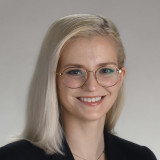Change is a funny thing. In the course of medical training you quickly get used to it. Changing semesters, changing rotations, changing OR schedules, changing expectations. But through it all there is a clear path forward, prescribed by the institution of medical education. College, medical school, residency, fellowship, then the promised land of being finished. There may be some deviations along the way — a career before medical school, a research year, a switch in specialties — but those are the peaks you have to scale to reach the mountaintop.
But what happens when you get there? That’s what I’m finding out. Reaching this point has been such an abstraction for so many years that it feels like the closing credits of a movie, when all the action is resolved and the characters ride off into the sunset. But it’s really only the beginning.
I’m currently holed up in a hotel desperately cramming the last bits of information into my head in the 12 hours between my last big written board exam and the corresponding oral exam. Yesterday I spent all day in a freezing ballroom losing all feeling in my hands while bubbling in answers to questions that will theoretically prove I’m capable of practicing the craft I’ve spent the last few decades working through. Later today I’ll stress-sweat through my suit discussing the care of theoretical patients with legends in my field. All to prove I’ve made it, I know enough, I’m ready to move from being a trainee to a fully independent physician.
But are we ever ready for that? In speaking with my co-examinees the trepidation is there, not just about the exam but about what comes next. We are certainly all excited to move forward but nervous about this next step into the great unknown. While one is seldom truly on their own with a network of colleagues and mentors to call for guidance, the one-foot-in-front-of-the-other path is now gone. Will you become a research powerhouse with a national reputation? A dedicated educator who trains the next generation of physicians? A consultant for industry or government? An entrepreneur or inventor? An exceptional clinician beloved by their patients? Or, simply enough, someone who goes to work, does a quality job, and has a rich family life with hobbies? The possibilities are multiple.
In my transition I’ve already been faced with so many decisions that were never even remotely within my purview previously. When do I start my job? There is no prescribed start date like the start of a semester or academic year. What instruments do I want in my OR sets? Previously I’ve used what someone else preferred or what was available but now I can have a curved iris scissor for every case! What do I want my schedule to look like? What patient complaints will I see? And most importantly, how do I start on the right foot? How do I continue learning and pushing myself to be better while not getting buried under the onus of doing too much too soon? Because the training wheels are off and the path ahead is mine to choose.
Being in control (to some degree; there are still so many rules and policies to contend with) is certainly exciting but also unsettling. Where do you set boundaries? As a resident you have work hour limitations and supervision requirements. You play-act at making decisions but ultimately someone else bears the responsibility. You rotate off and leave complex patients to the next resident, are guaranteed time off after a sleepless night, have protected time to learn and study. As an attending, that safety net is gone and now it’s in your employer’s interest to have you work as much as possible and crank out patient visits and surgeries. As I prepare to move into this next stage in my career, I’m thinking about how to find that sweet spot between using all the things I’ve learned and finally having some power to carve out time for my family and friends who have been neglected for years, between pushing myself to be better of my own volition and honoring every physician’s pledge to do no harm. While the path of training was long, it always had a planned route. Now the road lies open ahead of me, full of possibilities and pitfalls.
What kind of attending physician have you turned out to be? Share in the comments!
Heather is the inaugural Facial Plastic and Reconstructive Surgery fellow at Penn State. Her clinical interests include patient communication, medical education, facial reanimation, and complex reconstructive surgery. Heather was a Doximity Op-Med Fellow in the 2021–2022 cycle as well as the 2022–2023 cycle, and continues as a 2023–2024 Doximity Op-Med Fellow.
Illustration by Diana Connolly







